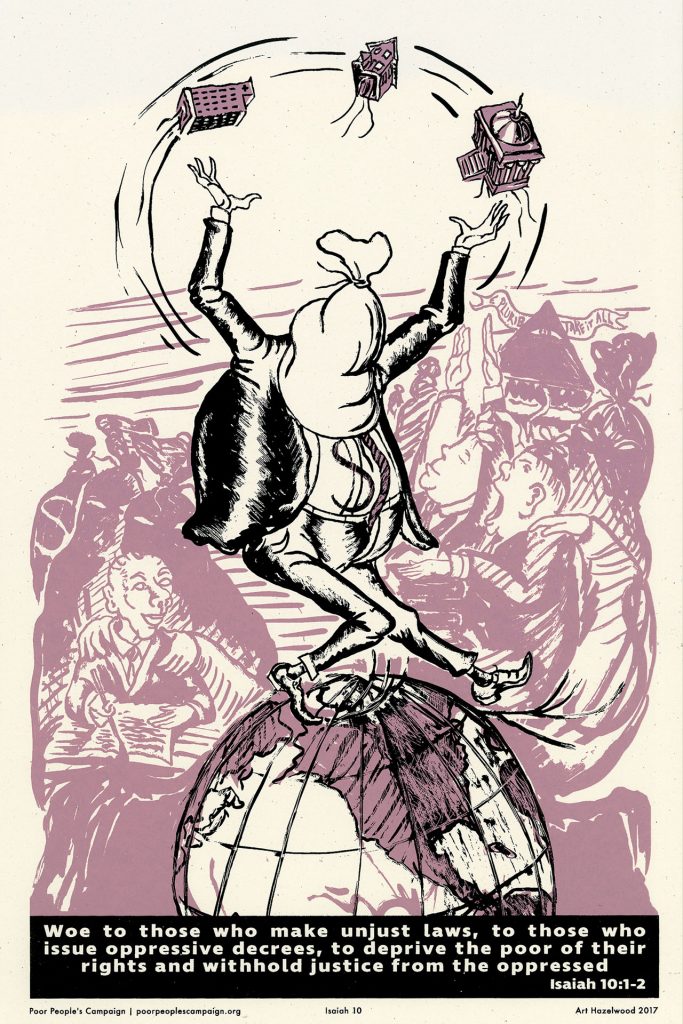Human beings often seek weaponry to feel equal to or better than others. By learning to use martial arts, people can weaponize their own bodies. Others resort to guns, sometimes used in robberies, because their use can terrorize people into cooperation with almost anything. Almost any physical or nonphysical object can become a type of weapon. Weapons can come in numerous forms, some of which are intangible. For some, money is used as weaponry. Money isn’t an intangible, but it does not involve physical ammunition, or a physical blade, and it doesn’t involve obvious physical violence. Yet it can harm and kill just the same. Money, under the wrong circumstances, can be used to attain power over the criminal and civil courts. The courts themselves are used as weapons, with money as the ammunition.

We’ve seen former President Trump go to court a lot. To Trump, the courts are a second home, and he is well versed in evading their punishments, using the courts to evade accountability, and using the courts to forward his personal and political agendas.
Even words can be twisted into becoming a weapon. In some instances, words, when they are deceitful, are used to assault a person’s reputation and livelihood. The common remedy for this is to counterattack with the civil courts. When words are insults, it is like using a taser on someone. Tasers are usually not fatal, but they are obviously painful as hell. Insults are never fatal, but they attack a person’s self-esteem, and they inflict pain.
Money brings power. While it doesn’t give power over oneself, it gives power over external conditions, events, and people.
Most people would rather have more money than less. If you do not have money, you can’t function in the world. You can’t eat or pay for food, shelter, or any of the other basic needs in life. Therefore, money is like blood–it gives life. Because of this simple and sometimes unacknowledged fact, if you have lots of money, you will attract people. This is where money has a dual purpose; it gives life, yet it can be used to conduct an attack.
You can also use money to inspire fear in people. Our social and economic systems are skewed to favor the people who have a lot of money. Money can often bring a level of immunity to justice. Or, at the very least, can bring some insulation from it. If you can pay for the very best attorneys, your chances of being wrongly convicted of a crime are minimal. If you rely on a public defender, you have little chance of defeating even some of the weakest cases against you.
People use money as a weapon of assault. Since the criminal justice and civil justice systems favor the wealthy, it becomes relatively easy to attack people through those systems.
On the other hand, when the non-affluent, taken as a whole, lack money, the economy doesn’t work. In this case, no one has money to buy anything, and thus none of the big companies can make any profits. When no one has the money to keep society going, everything begins to fall apart. All of society relies on money to make things work, and in its absence or near absence, the country is crippled. The wealthy realize this, and on occasion, circumstances force them to let go of some of the money they are hoarding and hand it over to the middle class and poor. Today this is taking the form of stimulus checks. In the past it took the form of general assistance checks. And to bring us out of the Great Depression of the twentieth century, in the 1930s, it took the form of putting people to work on building infrastructure, namely the Public Works Administration.
“Money brings power. While it does not give power over oneself, it gives power over external conditions, events, and people.”
Thus, the rich cannot keep every penny for themselves, and they know it. They may not like it, but they know it.
Yet, if you are an individual who lacks much money, you are materially unequal to an affluent person. The affluent person has advantages. The person of fewer economic resources has to become clever and resourceful to deal with this. People at the bottom have to work harder than do those at the top.
Yet, those at the top may have more capabilities in many realms. The poor person has to suffer along and struggle with things. When a rich person wants to exact revenge from a poor person, their weapons of offense could include interference with opportunities, sometimes through reputational damage, or with vexatious lawsuits, and with hiring people to do harm to the poor person. And this happens. Money brings power over external circumstances and over other people. Yet it does nothing for self-discipline. People with money presume superiority. Yet, this is not factual. A rich person is not superior.
The human mind can do many things. One of them is for the mind to train itself into being better. People can do things with their minds that many wealthy people could never understand. If they could understand this, it might bring more kindness into the world, and less of using everything as weapons.
Jack Bragen is author of “Revising Behaviors that Don’t Work,” “Instructions for Dealing with Schizophrenia,” and “Jack Bragen’s 2021 Fiction Collection,” and lives in Martinez.
